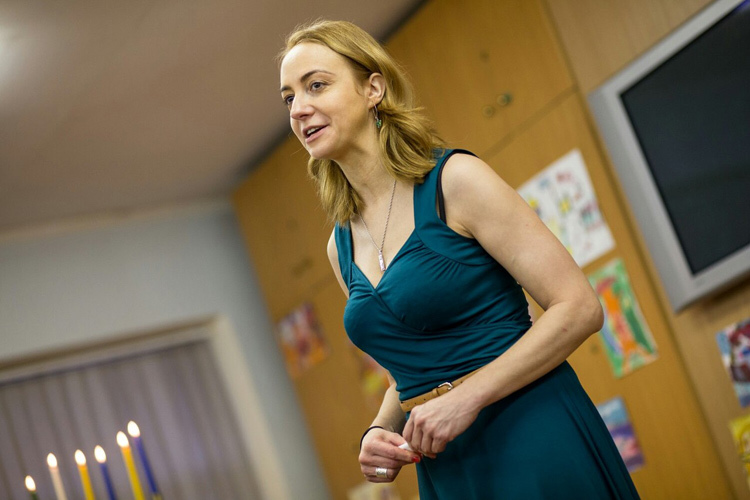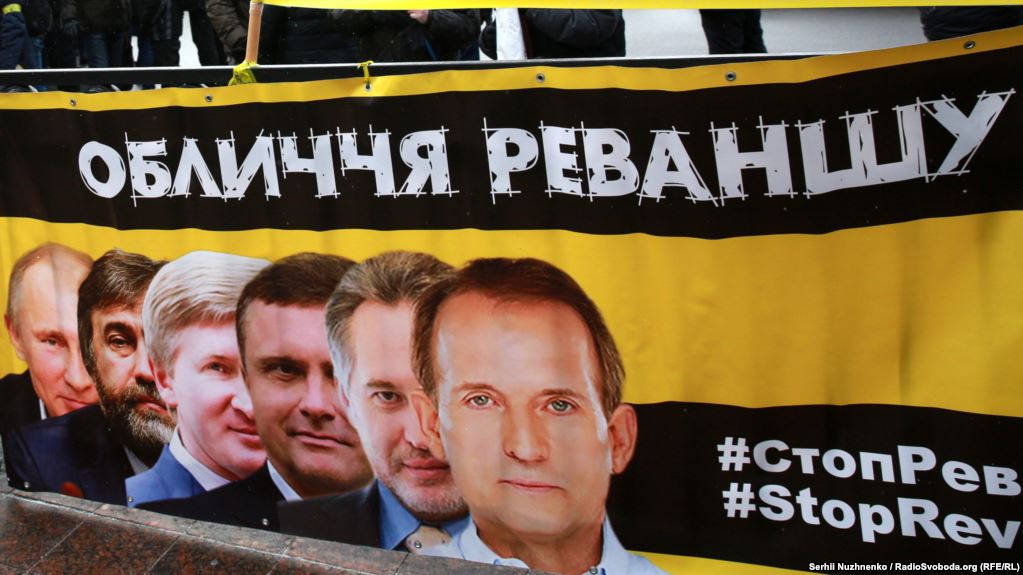The climate of fear and hatred that Vladimir Putin has created in Russia which first was directed against Chechens and then immigrants and gays, is now to the surprise of no one familiar with Russian history and with the propensity of those in any country who hate to find additional objects for their hatred being directed at Jews.
In an article entitled “Beat the Jews, Save Russia” on colta.ru, Svetlana Reiter tells the story of two women in St. Petersburg, one a Jew and one someone only connected with Jewish activities, and the rising tide of anti-Semitism they and others now face from some within the population and worse from some within the police.
Leokadiya Frenkel, program coordinator at the Jewish Community Center in the northern capital, describes her experiences while teaching Russian to migrant workers from Uzbekistan, Kyrgyzstan and Georgia, an action that Russians and especially Russian nationalists might be expected to approve of.
But that is far from the case. She reports that a group calling itself “Morality” on the VKontakte social network attacked her efforts, posting 161 pictures of her and denouncing the notion that “a Jew-liberal social group should be going to meetings and teaching ‘black’ children the Russian language.”
The group, which has more than 4,000 followers, is “absolutely fascist and anti-Semitic,” Frenkel says. “They constantly write that migrants commit a large portion of crimes in Russia, that ‘black’ children go into our schools and defile out children, that the children of migrants are wild beasts” and so on.
When the site learned that “a Jewish woman was teaching immigrants,” its leaders concluded that they were dealing with what in their lights was “pure evil.” They posted information not only about her but about her son and her husband, and they declared that neither Jews nor immigrants “have a place in our society.”
Mikhail Kuzmin, 28, the founder of the “Morality” site, is a graduate of the St. Petersburg branch of the Russian Academy of Law and a member of the local section of the Great Russia party. He has attracted attention in the past for attacking lesbian and gay activists with his fists.
In one of the pictures posted on the site, Frenkel says, Kuzmin is shown in a policeman’s uniform, although she said that she doesn’t know whether he really is one. Another photograph shows him standing alongside notoriously obscurantist Duma deputy Milonov.
“The most terrible thing, of course,” she continues, is that Kuzmin “not only is operating in social networks. He is walking around the streets. I complained to the VKontakte administration, but they responded that ‘if you don’t like this group, then don’t look at its materials. We close only those groups which directly threaten someone’s life.”
Frenkel continues: “It is difficult for me to say whether people from ‘Morality’ threaten my life.” But among its thousands of followers, it is not impossible to imagine that there are some who would. Moreover, she says, “I am really afraid for my family” given “the insane level of aggression” in Russian society.
She adds that her center does not have any guns to defend itself. “The only thing” she says she can do is to talk about this group in public and hope that shining a bright light on this evil will cause others to be as appalled as she clearly is.
The second person with whom Reiter spoke is Tamriko Apakidze, an ethnic Georgian who used to teach at the Petersburg Institute of Judaism before deciding that the situation there was too uncomfortable and moving to Germany. She recounts how she found herself in a police station because she had carried signs declaring “Crimea is Ukraine” and “Make Love Not War.”

Initially she was intrigued having never been detained before. But when the police took her documents and refused to allow her to call anyone, she says she realized that this was no laughing matter. Moreover, her interrogator became angry when she said that she worked at the Institute of Judaism.
He began to “ask what I taught there and how long I had worked there.” She says she was then released, handed a protocol and told to wait for notification of her court date. But the next day, she found out that this was hardly the end of it. It turned out that sitting near her at the police station was Kuzmin of “Morality” and that he shared all this with his VKontakte group.
Although she had said that she was a Georgian, Apakidze reports, her work at the Institute of Judaism was enough for him. He posted some 25 pictures of her, a screenshot of the institute itself, along a photograph of himself in a Nazi uniform with the words that she wasn’t a homosexual but she supports them.
Apakidze’s husband wrote Kuzmin, denounced him as a Nazi and demanded that he remove all the picture of her, she says. To that Kuzmin responded: “I am not a Nazi because all Nazis are kikes.” There was no reason to continue the discussion, she adds, but she indicates that she never expected to encounter anything like that in her life.
She and her spouse asked VKontakte to take down the site. But it didn’t, and she became “very afraid,” Apakidze says, especially when she saw the photograph of the institute. Indeed, she acknowledges, all this made her paranoid especially since it gave rise to “the suspicion that Kuzmin is working in connection with the police.”








